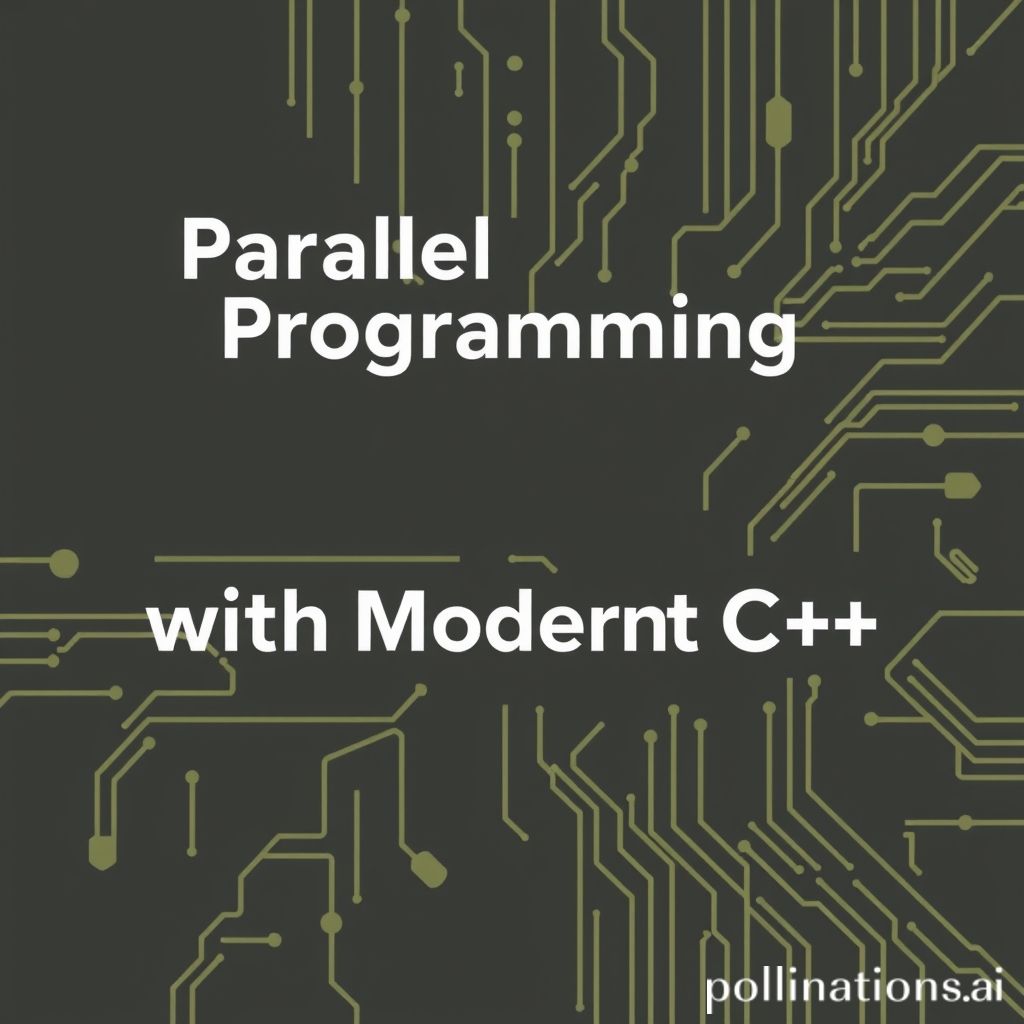
Parallel Programming with Modern C++
Modern C++ offers powerful tools and features for tackling parallel programming challenges. Leveraging these capabilities allows developers to write efficient and scalable applications that can take full advantage of multi-core processors and distributed computing environments. This article explores some key aspects of parallel programming using modern C++.
Threads and the Standard Library
The foundation of parallel programming in C++ lies in the <thread> header. This header provides the std::thread class, which represents an independent thread of execution. Creating a thread is straightforward:
- Include the
<thread>header. - Create a
std::threadobject, passing it a callable object (function, lambda, or function object). - Call the
join()method to wait for the thread to finish, or thedetach()method to let it run independently.
For example:
#include <iostream>
#include <thread>
void worker_function() {
std::cout << "Worker thread executing..." << std::endl;
}
int main() {
std::thread worker(worker_function);
std::cout << "Main thread executing..." << std::endl;
worker.join(); // Wait for the worker thread to finish
std::cout << "Main thread finished." << std::endl;
return 0;
}
Synchronization Primitives
When multiple threads access shared resources, synchronization mechanisms are crucial to prevent race conditions and ensure data integrity. C++ provides several synchronization primitives:
- Mutexes (
std::mutex): Provide exclusive access to a shared resource. Threads must acquire the mutex before accessing the resource and release it afterward. - Locks (
std::lock_guard,std::unique_lock): Manage mutex ownership automatically, ensuring proper locking and unlocking even in the presence of exceptions.std::lock_guardprovides basic exclusive ownership, whilestd::unique_lockoffers more flexibility. - Condition Variables (
std::condition_variable): Allow threads to wait for a specific condition to become true. They are typically used in conjunction with mutexes. - Atomic Operations (
std::atomic): Provide atomic read-modify-write operations on primitive data types, eliminating the need for mutexes in certain simple cases.
The C++ Concurrency Library
Modern C++ offers more than just threads and mutexes. The C++ Concurrency Library provides higher-level abstractions for parallel programming, such as:
- Futures (
std::future): Represent the result of an asynchronous operation. They allow you to retrieve the result of a computation at a later time, potentially from a different thread. - Promises (
std::promise): Provide a way to set the value of a future. One thread can set the value of a promise, and another thread can retrieve that value through the associated future. - Asynchronous Tasks (
std::async): Launch a function asynchronously, returning a future that represents the result.std::asynccan automatically manage thread creation and scheduling.
Using std::async is often simpler than manually managing threads:
#include <iostream>
#include <future>
int calculate_sum(int a, int b) {
std::cout << "Calculating sum in a separate thread..." << std::endl;
return a + b;
}
int main() {
std::future<int> result = std::async(std::launch::async, calculate_sum, 5,
